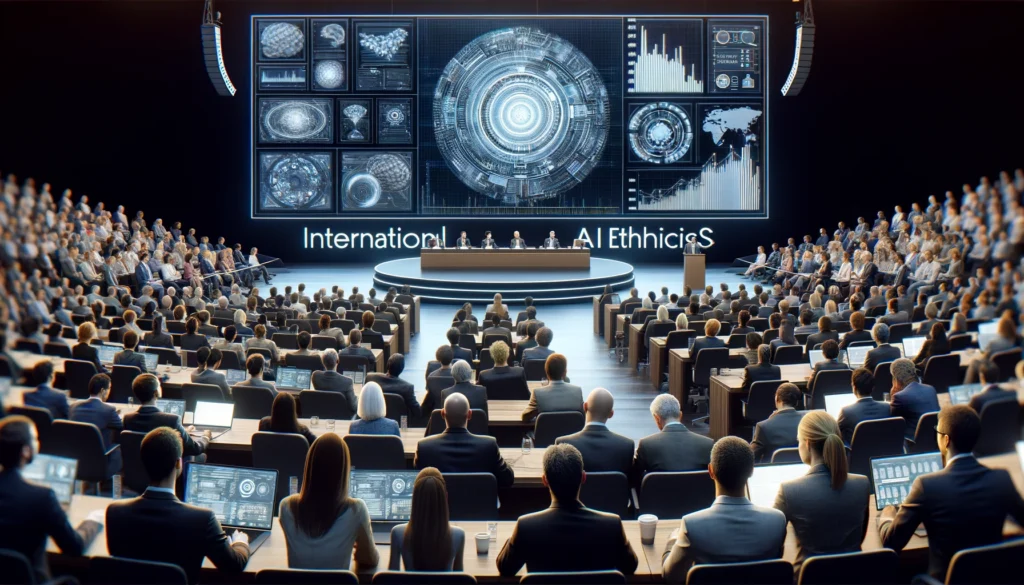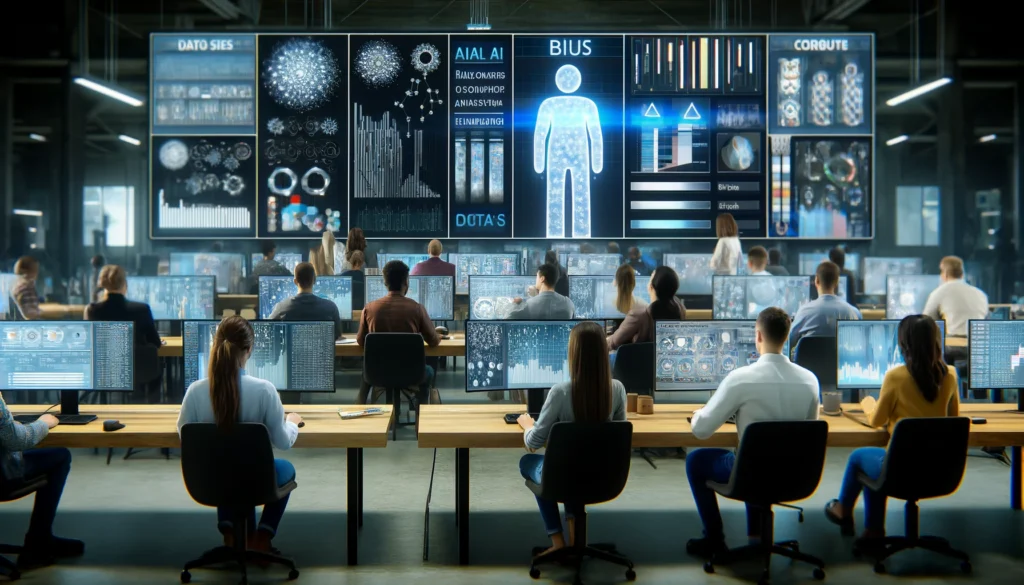As Artificial Intelligence (AI) permeates diverse sectors such as healthcare and autonomous vehicles, the ethical AI challenges it presents become a pivotal area of concern. This article explores the moral implications of AI’s broader integration, connecting these ethical issues to themes previously discussed in our series.

Transparency and Accountability
Transparency is a major ethical concern in AI, especially with algorithms that are not easily understood by users or stakeholders. These “black box” systems can create significant challenges in sectors where decisions have profound impacts, such as criminal justice or healthcare.
Accountability is essential where AI’s decisions may lead to harm. It is vital to establish who is responsible for AI’s actions—be it the developers, users, or manufacturers—to ensure that there are consequences for failures or misuse.
Fairness and Bias Correction

AI systems that learn from biased data can perpetuate and amplify these biases, affecting decisions in hiring, law enforcement, and loan approvals. Promoting fairness requires meticulously curated datasets, regular bias checks, and algorithms designed to identify and correct biases automatically.
Privacy Concerns with AI
While AI can offer personalized services, it also poses significant privacy risks. Effective AI functionality often relies on extensive data collection, which can lead to invasive surveillance or misuse of personal information. Balancing AI’s benefits with robust privacy protections is crucial.
The Impact of AI on Employment
AI’s potential to automate tasks could lead to substantial job displacement. Although AI may create new job categories, it could also obsolete existing roles, especially in sectors like manufacturing and administration. Developing policies to support workforce transitions, such as retraining programs, is essential for smoothing these economic shifts.
Aligning AI with Human Ethics
As AI systems make more autonomous decisions, it’s imperative to ensure these decisions are aligned with ethical human values. This alignment should respect human dignity, justice, and individual rights to autonomy and freedom.
Conclusion
AI’s ethical landscape is complex and requires ongoing attention as the technology evolves and becomes more pervasive. Collaboration among developers, policymakers, and users is essential to ensure AI operates transparently, fairly, and in alignment with human values. Cultivating ethical AI is crucial for advancing technology in a way that respects human rights and enhances global welfare. This commitment to ethical development not only secures public trust but also guides AI towards a beneficial role in society.
For more insights and to continue this discussion on AI’s impact, follow our ongoing series on Opinions and Analyses here.



